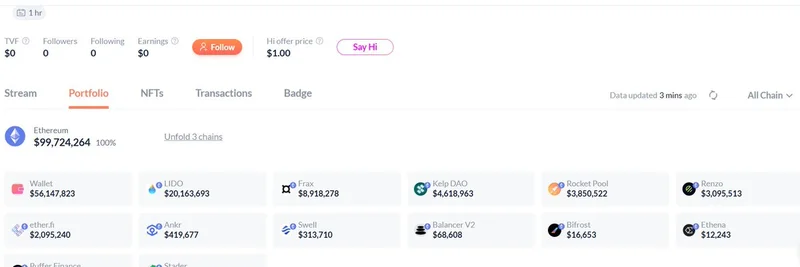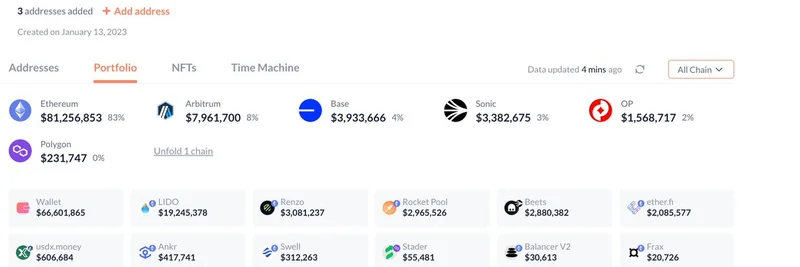Hey folks, if you've been following the wild world of crypto and blockchain, you know that behind the memes and moonshots, there's a serious side to building sustainable projects. Especially in the meme token space, where hype can drive prices but solid fundamentals keep things afloat long-term. That's why a recent thread on X (formerly Twitter) from stablecoin expert Austin Campbell caught my eye—it's a no-holds-barred look at why crypto companies keep fumbling when it comes to hiring top-notch finance talent.
For those new to the scene, Austin Campbell is no stranger to the industry. He's the founder of Zero Knowledge Group, teaches at NYU Stern, and has stints at big names like JPMorgan and Paxos. His expertise in stablecoins—those digital assets pegged to fiat currencies like the US dollar to minimize volatility—makes him a go-to voice for understanding how reserves are managed and why mishandling them can lead to disasters.
The spark for this discussion? A quoted post from user @MetamateDaz, who vented frustration about crypto firms hiring "normies" (everyday folks without deep crypto knowledge) because true experts are too busy or independent to join the grind. It's a fair point—crypto moves fast, and not everyone wants to clock in for a company when they can thrive solo or in DAOs (decentralized autonomous organizations, basically community-run projects without a central boss).
But Austin flips the script in his reply, highlighting a bigger issue: crypto's systematic failure to attract or retain solid finance professionals from traditional finance (tradfi). He compares it to how tech companies often sideline finance teams, treating them like an afterthought in a "closet." In crypto, this mindset leads to hiring from middle-office roles (think back-end support in banks, not the high-stakes trading floors) and assuming that's the cream of the crop.
Let's break it down simply. In banking, an associate (a mid-level role) in trading can pull in over $350k in total compensation. Yet, crypto finance jobs top out around that mark for seniors? That's like offering a top software engineer $75k—good luck keeping them! Austin points to real-world blunders, like Sam Bankman-Fried (SBF) of FTX fame, who came from a delta-one background (handling straightforward trades like stock-for-stock swaps) but ended up overseeing billions without proper risk controls. Or the infamous case of leaving $3.3 billion in reserves at a random regional bank—something no pro at a money market fund (MMF, low-risk investment pools) or private equity firm would ever do.
This isn't just about pay; it's a cultural clash. Crypto often sees tech as the star, ignoring that finance is the backbone for things like stablecoin issuance, treasury management, and regulatory compliance. Without blending multi-industry teams—techies, finance pros, and legal eagles—projects hype up but flop on adoption. Investors in fintech VC (venture capital for financial tech) undervalue this, leading to overinflated valuations for half-baked ideas.
Why does this matter for meme token enthusiasts and blockchain builders? Meme tokens like Dogecoin or newer ones on Solana thrive on community and virality, but as they scale, they need robust finance to handle liquidity, partnerships, and even tokenomics (the economic design of a token). Poor hiring means more scandals, like reserve mismanagement that erodes trust. Tradfi pros hear crypto execs spout nonsense about stablecoins and just tune out, missing opportunities for real innovation.
Austin wraps it up with a zinger: It's like Elon Musk building Tesla but preaching the benefits of square wheels. The core tech in blockchain has huge value—think efficient cross-border payments or decentralized finance (DeFi, financial services on blockchain without banks)—but the execution? Often amateur hour.
If you're a blockchain practitioner looking to level up, this thread is a wake-up call. Start by studying tradfi basics; resources like Investopedia can help demystify terms. And for meme insiders, remember: Sustainable memes need financial smarts to turn laughs into lasting value.
What do you think—has crypto's hiring improved since the FTX crash, or are we still in the wild west? Drop your thoughts in the comments, and stay tuned to Meme Insider for more on how meme tokens intersect with real-world blockchain tech.



